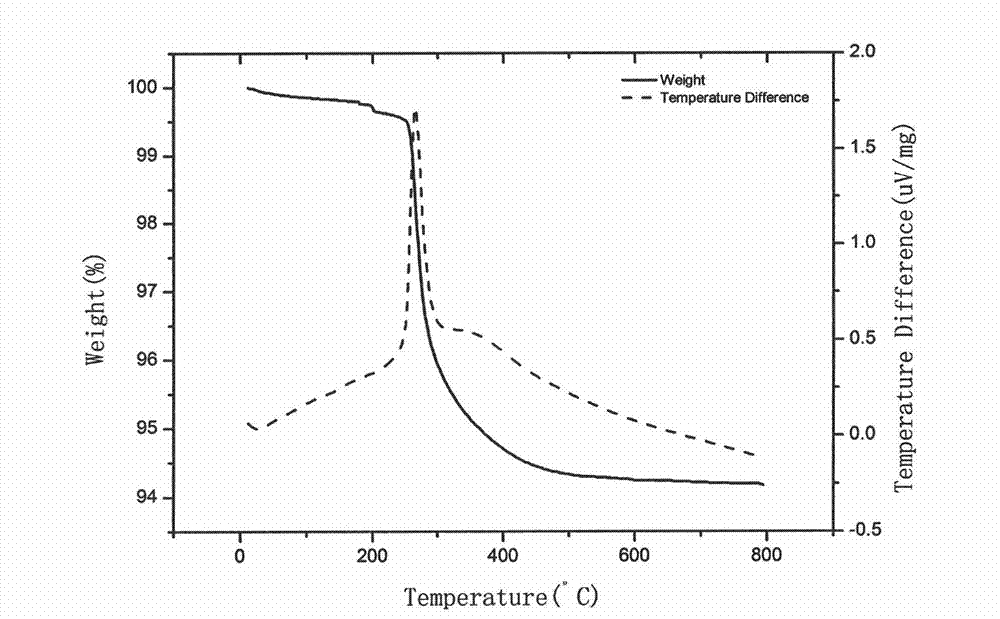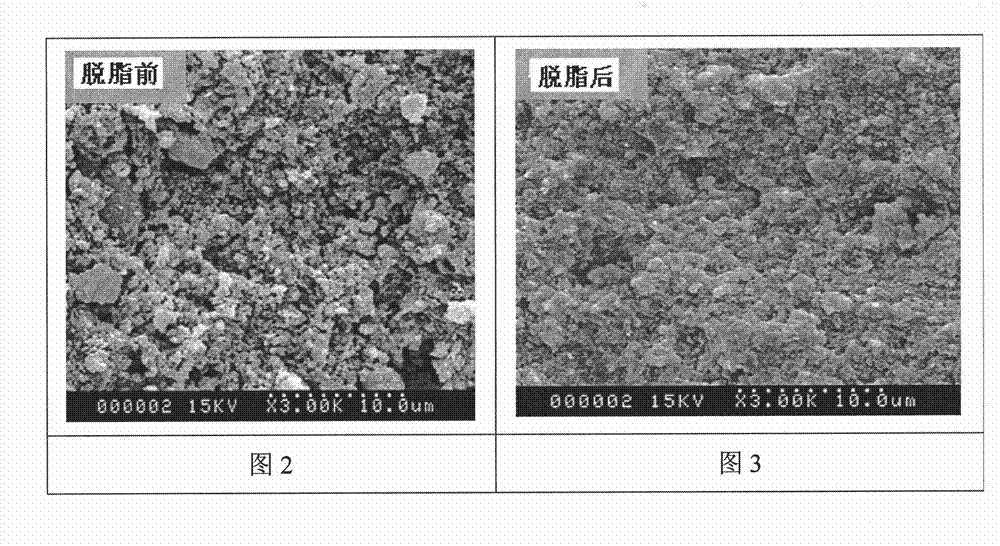Degreasing method used for transparent alumina ceramic injection molding product
An alumina ceramic and injection molding technology, which is applied to ceramic molding machines and manufacturing tools, can solve the problems of long degreasing cycle, short degreasing cycle, and low degreasing rate, and achieve low defect rate, uniform degreasing, and improved degreasing rate. Effect
- Summary
- Abstract
- Description
- Claims
- Application Information
AI Technical Summary
Problems solved by technology
Method used
Image
Examples
Embodiment 1
[0029] A ceramic sample (transparent alumina ceramic green body for injection-molded metal halide lamp tubes) was prepared with 80% alumina and 20% binder and weighed. The weight percentage of the binder was 19% poly Propylene, 80% paraffin, 1% stearic acid.
[0030] The ceramic green body is immersed in the extraction solvent, in which the ratio of the ceramic green body volume to the solvent volume is 1:60; the extraction time is 3h, the extraction temperature is 45℃, and the extraction solvent is composed of 20% by volume. A mixture of alcohol and 80% n-heptane. Then, the extraction solvent is drained, and the ceramic green body is air-dried and weighed at room temperature to calculate the extraction rate.
[0031] The ceramic green body is buried in alumina powder with a particle size of 20-40 um, and the thermal degreasing is carried out according to the preferred temperature-rising curve of thermal degreasing and then weighed to calculate the degreasing rate.
[0032] The deg...
Embodiment 2
[0037] A ceramic sample was prepared with 80% alumina and 20% binder. The weight percentage of the binder was 19% polypropylene, 80% paraffin wax, and 1% stearic acid.
[0038] The ceramic green body is immersed in the extraction solvent, in which the ratio of the volume of the ceramic green body to the volume of the solvent is 1:80; the extraction time is 4h, the extraction temperature is 60℃, and the extraction solvent is composed of 20% by volume. A mixture of alcohol and 80% n-heptane.
[0039] After extraction, the extraction rate was measured to be 77.7%. After burying the extracted sample into powder and performing thermal degreasing according to the preferred thermal degreasing curve, the degreasing rate was determined to be 99.5%
Embodiment 3
[0041] The ceramic samples were prepared with 80% alumina and 20% binder. The weight percentage of the binder was 19% polypropylene, 80% paraffin wax, and 1% stearic acid.
[0042] The prepared ceramic green body is immersed in the extraction solvent, in which the ratio of the volume of the ceramic green body to the volume of the solvent is 1:80; the extraction time is 4h, the extraction temperature is 60℃, and the extraction solvent is composed of 30% by volume. A mixture of alcohol and 70% n-heptane.
[0043] After extraction, the extraction rate was measured to be 77.5%. After the extracted sample was buried in powder and subjected to thermal degreasing according to the preferred thermal degreasing curve, the degreasing rate was measured to be 99.3%
PUM
| Property | Measurement | Unit |
|---|---|---|
| particle diameter | aaaaa | aaaaa |
| density | aaaaa | aaaaa |
| extraction efficiency | aaaaa | aaaaa |
Abstract
Description
Claims
Application Information
 Login to View More
Login to View More - R&D
- Intellectual Property
- Life Sciences
- Materials
- Tech Scout
- Unparalleled Data Quality
- Higher Quality Content
- 60% Fewer Hallucinations
Browse by: Latest US Patents, China's latest patents, Technical Efficacy Thesaurus, Application Domain, Technology Topic, Popular Technical Reports.
© 2025 PatSnap. All rights reserved.Legal|Privacy policy|Modern Slavery Act Transparency Statement|Sitemap|About US| Contact US: help@patsnap.com


